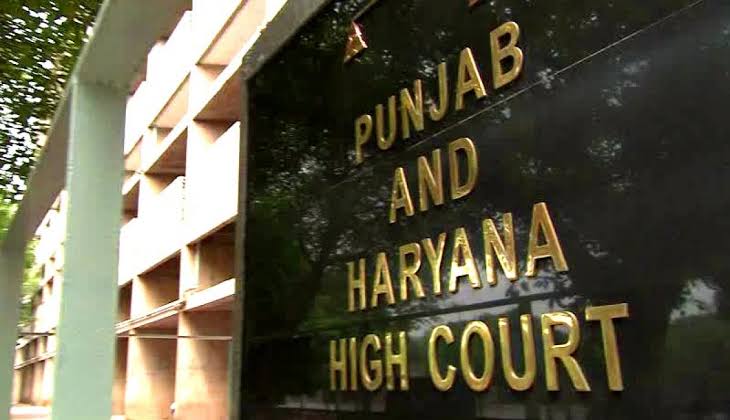The Punjab and Haryana High Court has laid down guidelines for the State Government, Police, Subordinate Courts and State Legal Services authorities to ensure proper investigation, collection of evidences and speedy trial in honour killing cases.
While hearing a bail plea of two of persons accused of honour killing, the High Court on August 31 observed that the directions given by the Supreme Court in various related cases are being flouted.
Background:
The FIR was registered under Sections 285 and 365 of IPC and Section 25 of the Arms Act,
1959 at Police Station Bhattu Kalan, District Fatehabad to which Sections 148, 149, 364, 452,
302, 201 and 120-B of the IPC and Sections 27 and 30 of the Arms Act, 959 were added. It
has been alleged that 15-16 persons came in two vehicles and one of them fired gun shot in
the air and they abducted the complainant’s nephew and his wife and took them away in their
vehicles. Later, the wife Sunita was recovered but dead body of his nephew was recovered
from Sidhmukh Canal in the area of Bhadra, Rajasthan. It was observed that the case
involved allegations of honour killing of deceased by persons whose honour was allegedly
subjected to disgrace by the deceased by performing marriage with their relative Sunita Rani.
Justice Arun Kumar Tyagi heard the bail application of two accused persons in an honour
killing incident. Although, the court granted bail to the accused, the Single-Judge bench
discussed and referred to the judgements passed by the Apex Court which condemned the
violence committed against those couples who enter into inter-caste or inter-religious
marriages.
Observations:
The single-judge-bench referred to Lata Singh v State of UP, where the Supreme Court had
observed that there was nothing honourable in such killings and these are shameful and
barbaric acts vomited by feudal minded persons. The Court discussed Bhagwan Dass v. State
(NCT) of Delhi, wherein the Supreme Court had observed, that honour killing cases come
within the category of rarest of rare cases deserving death punishment.
After discussing these judgments, the High Court observed that the directions of the apex
court continue to be flouted even now.
“The present case is a glaring example how the directions given by Hon’ble Supreme Court
are flouted, how the necessity of protection to the couple marrying against the wishes of their
family members is ignored, how the police fails to take prompt action to rescue the couple on
information being given to it, how the police tries to understate the offences, delay the
investigation, shield the accused by its inaction and still claim that there was no laxity or
delay in investigation of the case by it and how the higher police officers, who do not even
know that the case falls in the category of honour killing and they are required to follow the
directions given by Hon’ble Supreme Court, look the other way round and ignore the
deficiencies surfacing during investigation with almost culpable failure to appropriately
supervise/monitor the investigation and take appropriate remedial action to discharge their
statutory obligations.”
The court also observed that this present case was a glaring example how the directions given
by the Supreme Court are flouted, and the police fails to take prompt action to rescue the
couple on information being given to it, tries to understate the offences, delay the
investigation, shield the accused by its inaction and still claim that there was no laxity or
delay in investigation of the case by it.
Directions:
The court laid down the following detailed directions to be followed by various authorities.
For State Governments
The Governments of Punjab and Haryana must within one month, form committees
which shall examine all the relevant issues of compliance with the directions issued
by Supreme Court and this Court and submit their reports with their recommendations
within three months. The governments shall consider recommendations made by these
committees and take policy-based action for implementing the same.
For Police
Create a special cell in each Districts which shall collect and maintain information
and prepare the data base in respect of couples who approached courts for protection.
Set up a 24-hour helpline.
In case of reporting of any violence against inter-caste or inter-religion marriage or honour killing, FIR is immediately registered and ensure that effective investigation of the crime is done and taken to its logical end with promptitude within the period of
60/90 days.
Immediate steps are taken to provide security to the couple/family and, if necessary,
to remove them to a safe house.
Any failure by any police officer/official to comply with the aforesaid directions be
considered as an act of misconduct.
Expeditious trial
Ensure that cases of honour killing are assigned to the designated Court/Fast Track
Court/one jurisdictional court.
Ensure expeditious disposal of such cases preferably within the period of six months
as directed by the Supreme Court.
Conduct trial on day-to-day basis as far as possible by allocating block of dates for the
trial as directed by the Supreme Court.
Concerned court shall take appropriate action against witnesses who fail to appear
before it.
If trial is not concluded within the period of six months, Court shall submit the
progress report to the High Court seeking extension of time.
State legal services authorities
Set up schemes for providing legal aid to couples seeking protection.
Public awareness programmes against the social evils of violence against inter-
caste/inter-religion marriages and honour killing.
Compensation to the victims of inter-caste/inter-religion marriage and
dependants/legal heirs of victims of honour killing under the Victim Compensation
Scheme.
Apart from the general directions passed, the Court also directed the Haryana State
Legal Services Authority to take steps to award compensation to the legal heirs of the
victim of honour killing in the case at hand within three months.
Case Name: Ravi Kumar v. State of Haryana & Ors


